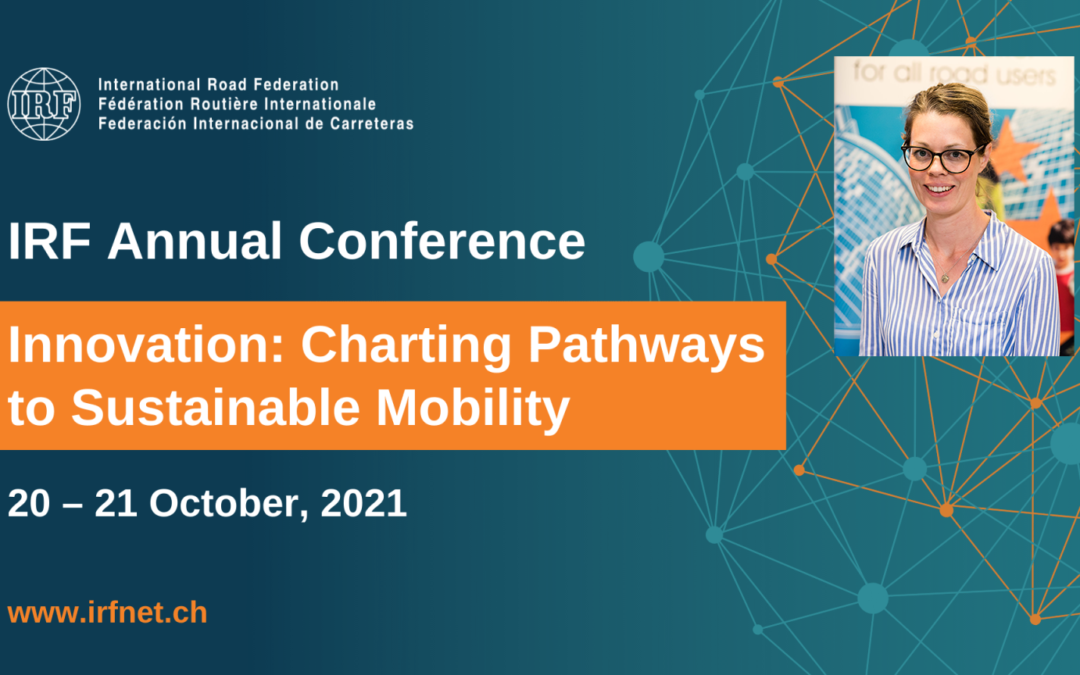iRAP Global Innovation Manager Monica Olyslagers will present AiRAP at the IRF Annual Meeting on 21 October in a session on “Unleashing the Potential of Digitalisation in the Road Sector”.
Registration is free for the International Road Federation (IRF)’s annual autumn conference which will be held online on 20-21 October under the theme “Innovation: Charting Pathways to Sustainable Mobility”.
With fast-growing populations leading to significant urbanisation, the demand for new transport infrastructure is predicted to see massive growth in coming decades. The new challenges: the increasing expectations of businesses, service users, and the public and the need to reduce carbon emissions and waste.
For the road sector, this means finding innovative ways to fulfil the need of building new roads, maintaining, upgrading and operating the existing road network, while aligning these actions with the provisions of the Paris Agreement – targeting lower greenhouse gases – and those of the SDGs looking for an equitable, safe and sustainable mobility for all.
Our collective task: create a truly safe, sustainable, and efficient multi-modal transportation system. For this to happen, we need to learn to think and do things differently.
The arrival of new digital technologies is enabling efficiency improvements in existing transport systems, as well as making them more user-friendly and sustainable. Integration across transport networks and modes is driven by the growing ability to make real-time system data and information available to operators and users.
None of the extraordinary mobility changes we are witnessing would be possible without proper infrastructure. Yet transforming mobility requires more than just technology and infrastructure. Transforming mobility requires innovation on all fronts: in the way we think, we plan, we design, and we deliver and manage transport systems.
iRAP’s AiRAP Initiative aims to capture the advances in artificial intelligence, machine learning, vision systems, LIDAR, telematics and other data sources to deliver critical information on road safety, crash performance, investment prioritisation for all road users. The data would meet iRAP’s common global standard, which is already being used globally for recording of road features that impact road safety to streamline and benchmark performance.
The accelerated and intelligent coding of these attributes will also enable the scale and frequency of data collection to support comprehensive performance tracking over time. This will support decision-making and investment prioritisation on the scale needed to help meet the United Nation’s Sustainable Development Goal 3.6; To halve road deaths and serious injuries by 2030.
AiRAP involves two principle elements:
- The AiRAP attribute accreditation will verify that source data converted into iRAP attributes meets iRAP’s stringent quality requirements and is scalable; That is, it can be consistently applied across specified geographic locations and road types.
- The AiRAP ‘Data Marketplace’ will connect those needing data with those supplying it.
Register for the IRF Meeting and view the programme and speakers here.
Read more on AiRAP here.


















